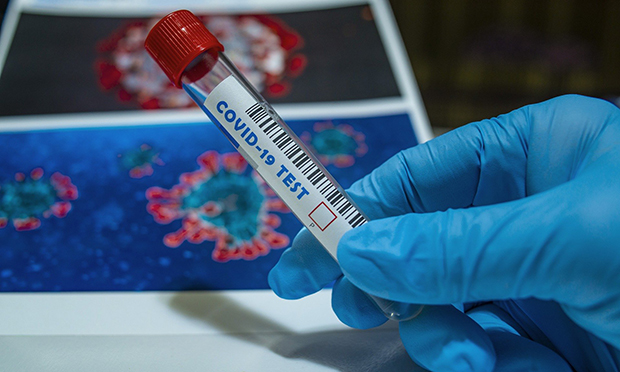‘Missing cohort’: Health inequality playing out through long Covid cases, data suggests

New statistics suggest there is a “missing cohort” of people struggling with long Covid but not receiving support, prompting health bosses to call for help from the council and voluntary sector.
The borough’s specialist service has to date completed 95 assessments in its clinic and around 40 in the community, with 300 referrals received so far.
But according to the latest data from City & Hackney’s Covid Rehab service, around 65 per cent of patients are white British or other white ethnicity.
In 22 per cent of cases, the ethnicity is not know, while roughly seven per cent are recorded as ‘Asian or Asian British – Indian’, with the remainder listed as ‘Black or Black British – Caribbean’ and ‘Mixed – any other’.
According to the figures, no cases have been treated so far for people of ‘Black or Black British – African’, ‘Black or Black British – Any other’, ‘Mixed – White & Black Caribbean’ or ‘Mixed – White & Black African’ ethnicities.
Workstream director Charlotte Painter said: “We are very conscious that we appear to be missing a cohort of people who have not presented and who potentially are struggling and have needs.
“That is quite a large number of people, so we have to balance that with not overwhelming the service, so we may have to do some sort of staged approach. The other thing we need to do is more communication and engagement via community groups.”
At a recent Town Hall meeting, health scrutiny chair Cllr Ben Hayhurst spoke of residents in his ward who contracted Covid in the first wave and visited their GP with symptoms of long Covid, but had not been able to access help because Painter’s system “was not in place or set up at that stage, and they feel they have nowhere to go”.
Painter said the system was “quite well aware” of people in this situation, with her team set on having GPs proactively contact patients who had either Covid or suspected Covid.
In a joint presentation between Painter and Dr Fiona Kelly, head of adult therapies and rehabilitation at the Homerton, councillors on the Health in Hackney scrutiny commission were told that two different cohorts had emerged of those living with long Covid.
One group are those, after hospitalisation, who required a period of care on a hospital ward and who would then receive treatment through a follow-up clinic.
The second group are people presenting with symptoms to their GP who are less likely to have required acute care and have recovered, before experiencing debilitating and long-term symptoms, with the average age of this group around 44.
Dr Kelly said: “It is a really wide range of symptoms people are experiencing. The most common that is often a feature is persistent fatigue which is really debilitating, and breathlessness.
“The impact is also far-ranging, so affecting people returning to work, looking after themselves and others, and their psychological wellbeing and management of relationships.
“It is of course a novel condition. We are continuously learning and developing the evidence base and doing that through collaboration. We are involved in regional and national work in developing clinical standards and building consensus around what may be some appropriate outcome measures.”
She added: “There is a risk of people attempting to do too much too soon and experiencing further relapsing, so it is really important this is a skilled, clinically-led intervention to support patients.”
You can find the Homerton one-stop-shop for Covid Recovery and rehabilitation of patient information and resources here, including fatigue management, physical activity and nutritional advice.
You can find the Homerton’s post-Covid information booklet here.
Nutritional advice from the Homerton’s dietetic team on eating and drinking when recovering from Covid can be found here.
You can call Talk Changes on 020 7683 4278 or visit www.talkchanges.org.uk. If you need urgent help because you are worried that you might harm yourself or someone else, call the 24-hour City & Hackney crisis helpline on 0800 073 0006.
